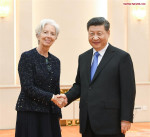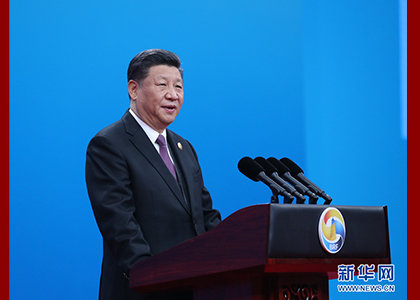2020/12/16 11:15 WORLD
Learning Chinese Language, Cultures Helpful for Ugandan Yout
After putting up an impressive performance at the preliminary Chinese language proficiency contest, Moses Aine is set to travel to China where he will battle with other competitors from across the world in the 18th Chinese Bridge competition.
Aine beat six other paricipants from Makerere University, Kyambogo University and Ndejje University to emerge as the winner.
Beyond the language and cultural exhibition contest, Ayub Sooma, one of the first Ugandans to study in China, on Saturday said at the contest that youths need to exploit these exposures to reap benefits from the China-proposed Belt and Road Initiative (BRI).
As countries embrace the BRI, Ugandan youths at the individual level need to strategize to benefit from the opportunities provided by the initiative, said Sooma, co-director of Luyanzi College, one of the pioneer schools in Uganda to teach the Chinese language.
In addition to offering Chinese language lessons to students at the secondary level, the school also hosts Ugandan language teachers who are learning Chinese so that they can teach it in their respective schools.
BRI projects, according to Sooma, provide opportunities to Ugandan youths. He noted that those with a clear understanding of the Chinese language and cultures have the upper hand.
Already, some Ugandan youths have started reaping from the benefits of BRI projects.
Infrastructure projects like construction of Karuma Hydro Power Plant, Isimba Hydro Power Plant, and expansion of Entebbe International Airport have provided employment and skills transfers to many youths.
Gabriel Omiat, who worked at the construction of the Kampala-Entebbe Expressway, has set up his own metal welding workshop.
Omiat said the workshop has ripple effects because it employs other youths and also increases his household income.
UPTAKE OF CHINESE LANGUAGE
According to the National Curriculum Development Center (NCDC), the Ugandan and Chinese government have an understanding to train over 100 Ugandan language teachers, who are trained under the guidance of the Confucius Institute at Makerere University.
The first batch graduated last December after a nine-month course of learning Chinese. The teachers are the pioneers of Ugandan Chinese language teachers.
After their graduation, the country early this year rolled out the Chinese language syllabus for secondary schools.
The NCDC estimates that within the next four years about 60,000 students would have learned how to speak Chinese.
At the Confucius Institute at Makerere University, many university students and business people are enrolling to learn Chinese.
"Chinese is bringing us closer, serving as a platform of mutual understanding," said Xia Zhuoqiong, Chinese director at the Confucius Institute at Makerere University.
Oswald Ndoleriire, the co-director of the Confucius Institute at Makerere University told Xinhua in a recent interview that there should not be any fear of the increasing Chinese interest in Africa.
Ndoleriire said China is not interested in wiping out African cultures and languages like some other powers that have attempted for the last several decades.
"The Chinese are coming because first of all they feel like they have something to offer. They are a group of disciplined people," he said.
(Source: Xinhua)
Explore further
| "Threads of Heritage: The E | |









